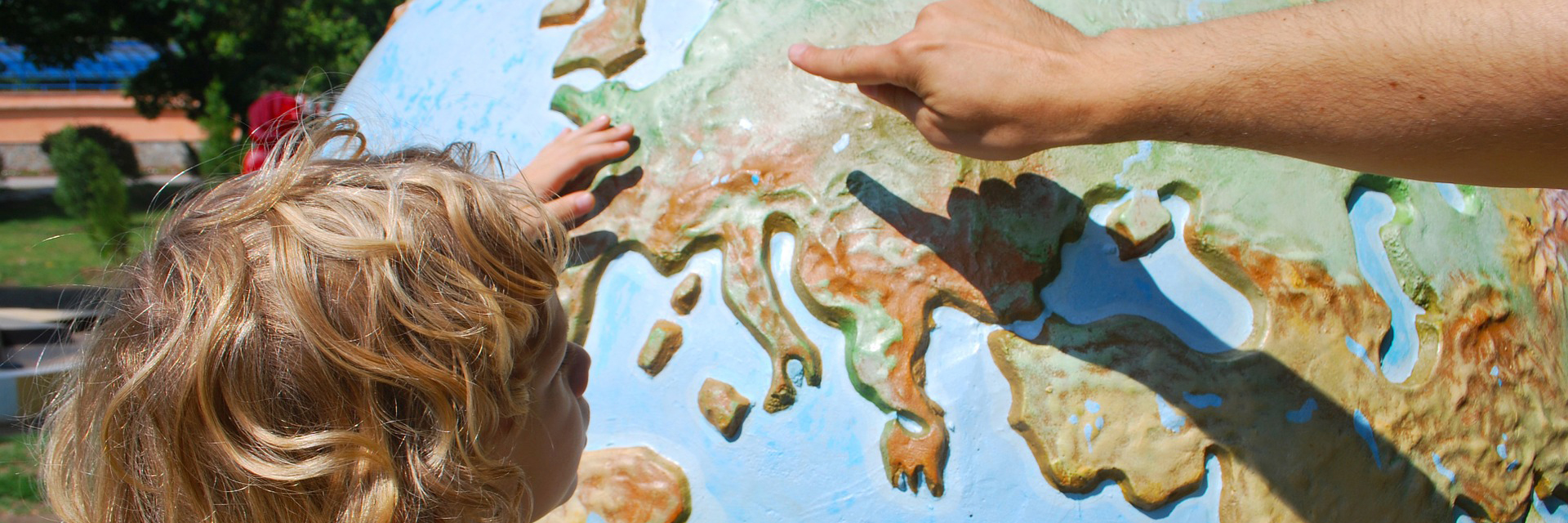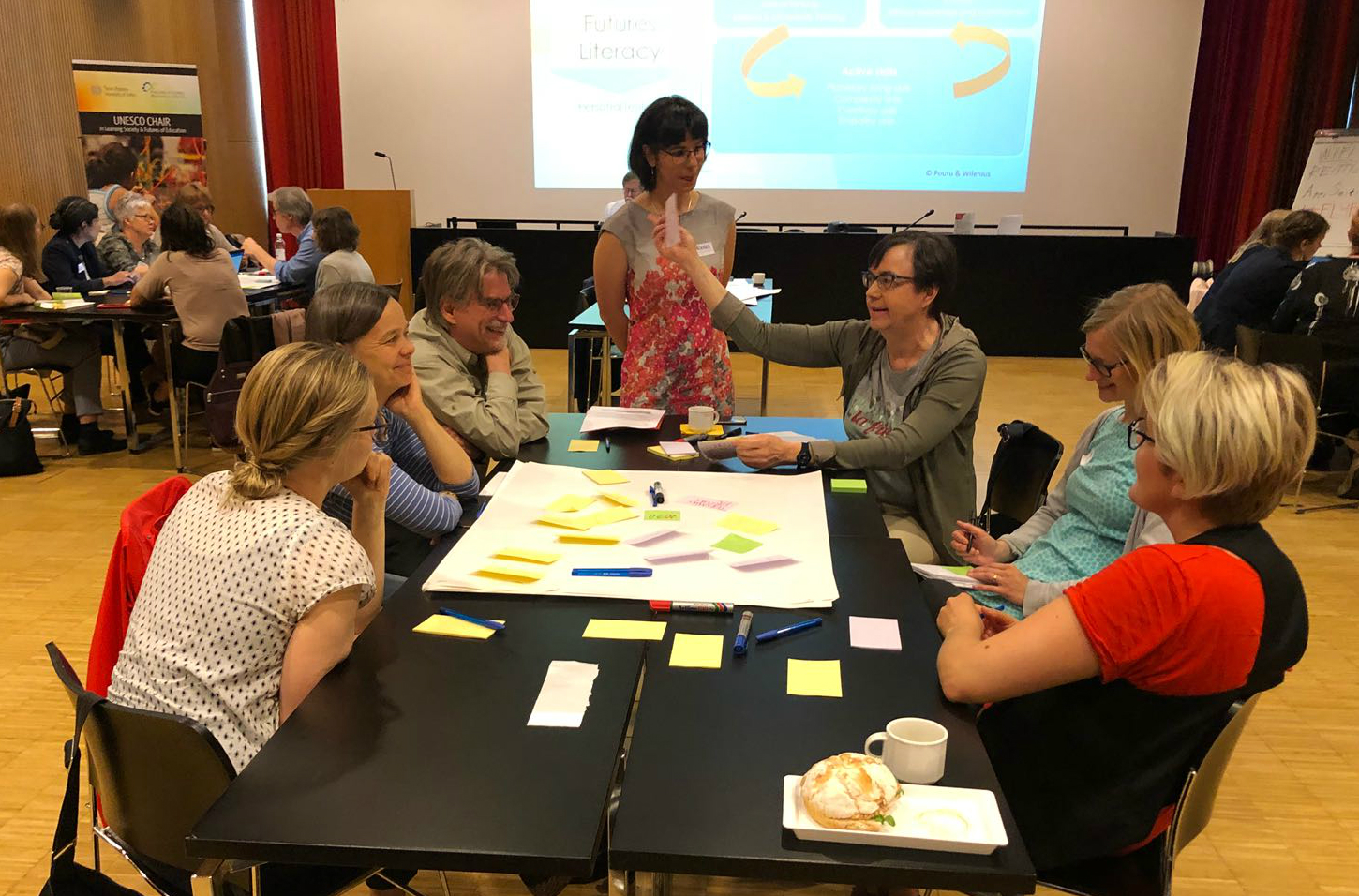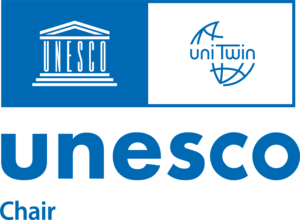Written by Laura Pouru & Markku Wilenius
About 40 representatives from academia, education administration and schools gathered to a morning session on the Future of Futures Literacy in Finland organized by UNESCO, Finnish National Board of Education and Finland Futures Research Centre on June 15th, 2018.The session explored futures of learning and ways of bringing futures literacy into the curriculum of Finnish education system.
What is Futures Literacy and Futures Literacy Laboratory?
Futures literacy refers to individual’s capability to use the future in the present. This is an increasingly valuable skill for people living in our complex and dynamic world. The capacity to observe and reflect upon how oneself and others “use the future” in the present can unlock great potentials for individuals, organizations, and society.
Futures literacy laboratory (FLL) is a learning experiment that aims at making participants more aware of their own anticipatory assumptions and their ways of using the future. Therefore the main goal is not to produce new knowledge to decision-making, but to inspire participants to become more conscious about the future. However, as the participants are guided through the Lab and offered kind of ‘sandbox’ where to play with new framings and anticipatory assumptions about the future, interesting new ideas are often produced as a by-product. In this blog post we are introducing some of the interesting themes that were brought up at the FLL sandbox, where the play material consisted of futures of futures literacy and learning in Finland.
Peer-to-peer learning in local communities
Firstly, the importance of local communities was strongly brought up in the discussions. Local communities were seen as the core unit where people live, communicate and learn. What are these communities and how are they formed, was a question raised during the lab. Are they “bubbles” of like-minded people or more heterogeneous fractals? Inhabitants of these local communities have well-being in physical, emotional and spiritual sense as their life’s core value. This means that, for example, “work is organized for life” instead of “life being organized for work”.
The local communities were also seen as the core setting where learning takes place, not anymore so much in schools but more in peer-to-peer networks. People can learn, for example, in heterarchical mentor-mentor –relationships, where both parties learn equally from each other instead of more traditional mentor-actor or master-apprentice relationships.
It was also noted that this kind of learning intensive society requires new kind of agency from the learners; everyone is responsible for their own learning and individual development. The question “Who owns the learning?” was emphasized in a sense that motivation and ownership of learning should always originate from inside the learner instead of outside from the teacher or other external motivations. In many visions school buildings had disappeared but teachers had not. In the learning intensive society teachers act as learning facilitators supporting individual learning. Teachers’ role as change agents was also seen crucial in the process of transforming our current learning system towards this new learning intensive society.
Future of futures literacy?
How about the future of futures literacy? Some participants believed that futures literacy will still be too abstract to integrate it to the national education curriculum, while others were optimistic that futures literacy would become a basic skill for everyone. The main concern seemed to be polarization: what if futures literacy becomes a skill that helps those who have it to succeed and those who don’t have it to be condemned to be less successful.
What we conclude is that if we are heading towards this kind of learning intensive society, where we own the responsibility of our own learning, futures literacy becomes even more essential. In this peer-to-peer-learning society futures literacy is like a compass that helps us to navigate and decide the direction we should focus our learning next. This is why we need to start building our individual, organizational and societal futures literacy skills today. This is something in which Finland can be a global forerunner, because we already have exceptionally strong tradition and institutions of futures studies and foresight in our country. Now we just need to mobilize this futures know-how and make it our shared capacity.
In practice we can start mobilizing our futures know-how by embedding futures literacy in all the levels of our current education system. Futures literacy can be taught in schools as phenomenon-based multidisciplinary courses, or elements of it can be integrated in the existing study topics, such as history, geography or the language studies. This way we can make “futures” more approachable as a topic that everybody knows is important but few have capacity to comprehend. Thinking of Finland, futures literacy could indeed become the new competitive edge for our learning institutions.
Conclusion
Futures literacy refers to a space of potential freedom inside our minds and hearts. Indeed, we can decide what kind of assumptions of the future we hold. Our hopes and our fears about future are very important vehicles in our journey towards future. Moreover, it is that mental space that creates opportunities for personal development and transformation. Simply put, our assumptions about future are the ways future exists in the present.
For the young people in particular, going through their formative years, it is critically important that they learn to discover their futures through their assumptions. To build a positive and constructive vision of future on personal, local and global level is by far the best asset they can have in our complex and fast changing world. By facilitating these discoveries we can make a great contribution to their lives. This is what futures literacy is all about.
The FLL was led by Head of Foresight Riel Miller from UNESCO and UNESCO Chair Markku Wilenius from Finland Futures Research Centre. Laura Pouru, Nicolas Balcom Raleigh, Ellinoora Leino-Richert, Marianna B. Ferreira-Aulu and Amos Taylor from the Finland Futures Research Centre organized and facilitated the group work sessions during the Lab. The session was organized as part of the research, development and education agenda of the UNESCO Chair in Learning Society & Futures of Education at the University of Turku.
Interested in Futures Literacy and Futures Literacy Laboratory as a learning method? See these:
Miller, R. (ed.) (2018) Transforming the Future: Anticipation in the 21st Century. Routledge.
